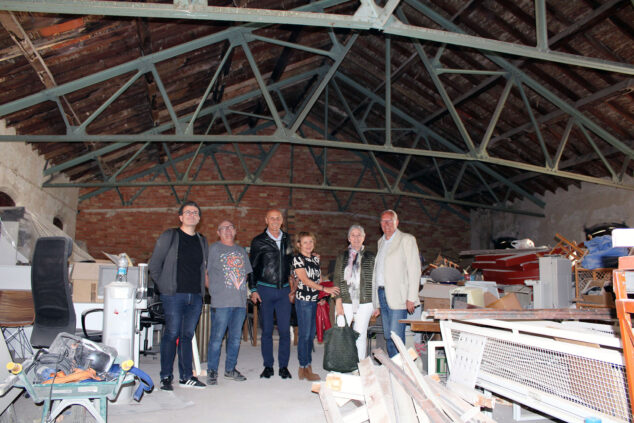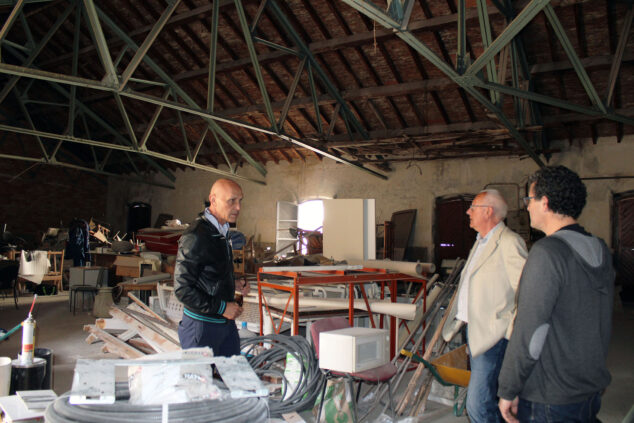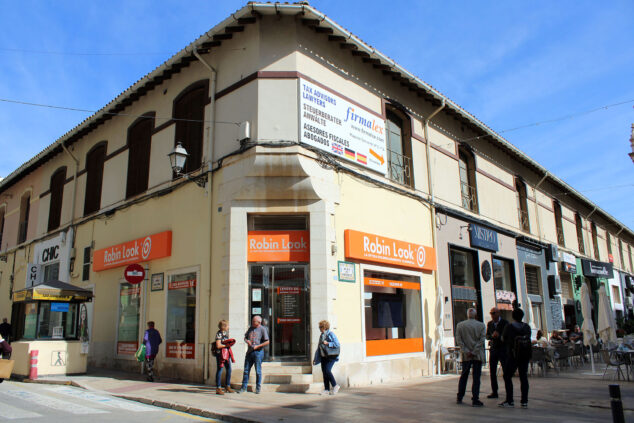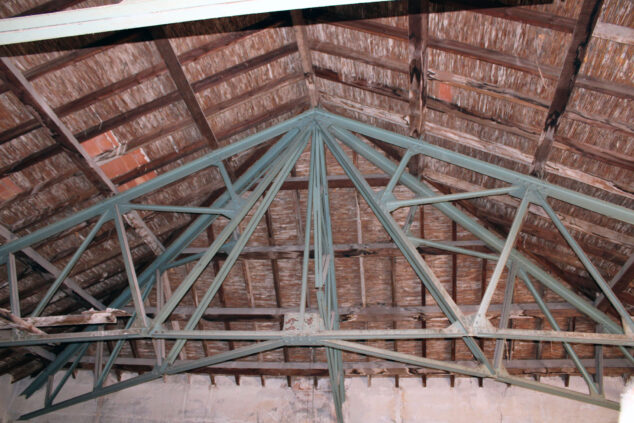The warehouse that the Cooperative Wholesale SL of Manchester built between 1909 and 1910 in the Plaza del Convent in Dénia to deposit, select and package the raisins that it exported to England and the rest of Europe from the port of Dénia will revive its splendor in full XXI century. The municipal government has reached an agreement with the Martí family, owner of the property, to rent part of what is known as Magatzem dels Anglesos for 25 years and allocate it to cultural uses.
Specifically, the Dénia Town Hall will have a space of 1.080 square meters on the top floor of the building, to create a cultural and multifunctional space, but, above all, the mayor has indicated, to "recover and maintain this space that is preserved like when it was a raisin warehouse, with its original iron, wood and reed structures, and make it available to the public.
The intention is to leave the room as it is, with the beams, the iron cleats that support the roof, which were made and brought from England, and, if possible, though difficult, the reed that covers the roof. The building, Grimalt has pointed out, "is a very important witness to that splendid time in the city" and the idea, which will be reflected in the project that will be drawn up shortly by the council and in the subsequent restoration, "is to try to preserve everything that had ».
The project also foresees that, together with these cultural uses to which the Magatzem dels Anglesos room will be used, such as exhibitions, conferences or events, a part will be dedicated to exhibiting material related to the time of the raisin trade in Dénia that contextualizes space.
Mayor, Vicent Grimalt, has made these statements during a visit to the Magatzem accompanied by the Councilor for Culture, Raul Garcia de la Reina, and Tino, Koke, Amparo and Poto Martí, representing the family that owns the building.
 Visit of the City Council to the historic warehouse of Dénia that will be used for cultural purposes
Visit of the City Council to the historic warehouse of Dénia that will be used for cultural purposesThe grandparents of the current owners bought the business from the Wholesale Cooperative after the Spanish Civil War, recalls Tino Martí. The raisin trade had already gone into decline and the export of other products, such as peanuts or oranges, was gaining ground, which the Martí family maintained until the end of the 60s, when the business closed.
Now, thanks to the predisposition of both parties, the city of Dénia will recover an emblematic space of its most recent history and will gain a new cultural and exhibition space open to the public.










Dani, grow up and stop harassing and exposing people in that rude and macho way.
Sorry but that's not machismo. Machismo is trampling on a woman for simply being one.
How easy it is to criticize.
More nonsense.
There should be a law that prohibits the misuse of places.
That warehouse should be the raisin museum or the extension of the ethnological museum.
And the house of the Duchess the Fester museum.
They really don't know how to use spaces.
Saioa García Gironés would know what to do.
She has good legs, a good figure and a piece of reproductive system.
She is a sensual "lady."
It's good
It can be found on Linkedin.
Study at María Ibars.
So now you know who to ask.
Caramba! Parlavem d'espais to recover per bé de tots els ciutadans, not missing the respect to any.
Em sembla molt be recuperar eixe espai. It will also improve the aspect of the plaça.
I also see the recovery of significant countries and that are part of our records. This space will also house the village jutjats for some years and later the Hisenda office.
As for you, Dani, grow up and stop harassing and exposing people in that vulgar macho way.
I have not disrespected anyone.
Saioa is a woman who is seducing around there. I have only explained it.